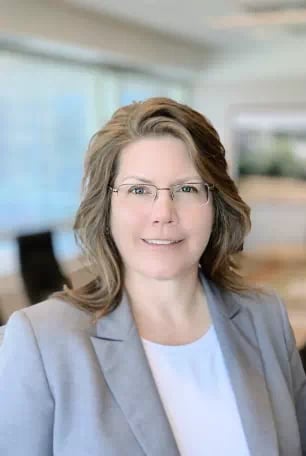-Jul-16-2025-07-47-52-5038-PM.jpg)
Let's talk about one of the most powerful yet often underutilized tools in your financial toolkit: the Health Savings Account (HSA). Whether you're thinking about healthcare costs or long-term financial planning, understanding how to make the most of your HSA can make a real difference in your financial future.
Contribution Strategies & Limits
If you have the means to do so, contributing the maximum to your HSA account is an excellent idea. Not only do health savings accounts allow you to save money for medical expenses in the future, but they're also a tax-deferred investment vehicle.
For HSA contribution limits for 2025 are:
- Individual Coverage: $4,300
- Family Coverage: $8,550
- Those 55 and older can contribute an additional $1,000 as a catch-up contribution.
Looking ahead to 2026, these limits will increase to:
- Individual Coverage: $4,400
- Family Coverage: $8,750
- Those 55 and older can contribute an additional $1,000 as a catch-up contribution.
Some important things to understand about maximizing your contributions include:
- If you didn't hit your maximum contribution limit in any given year, you can make up the difference until April 15th.
- Once you're 55 years old, you can make "catch-up contributions," allowing you to contribute $1,000 more a year than your maximum. This will enable you to make up for contributions you might not have been able to make while you were younger.
- There's no such thing as a joint account. If you want to truly maximize the amount you can save and take advantage of something like the ability to make catch-up contributions, both you and your spouse must have a Health Savings Account.
Eligibility & Requirements
Before you get started, it's important to know that to contribute to an HSA
To be eligible, you must:
- Be enrolled in a High Deductible Health Plan (HDHP)
- Not have a full-purpose health care flexible spending account (FSA)
- Not be enrolled in Medicare
- Not be claimed as a dependent on someone else’s tax return
For 2025, HDHP means:
- It has an annual deductible of at least $1,650 for self-only coverage and $3,300 for family coverage
- Its out-of-pocket maximum (including the deductible) does not exceed $8,300 for self-only coverage and $16,600 for family coverage
And for 2026, this means:
- It has an annual deductible of at least $1,700 for self-only coverage and $3,400 for family coverage
- Its out-of-pocket maximum (including the deductible) does not exceed $8,500 for self-only coverage and $17,000 for family coverage
The Triple Tax Advantage
One of the most compelling reasons to use an HSA is its unique "triple-tax advantage":
- Your contributions are pre-tax, reducing your taxable income
- Your money grows tax-free within the account
- You pay no taxes on withdrawals for qualified medical expenses
What Qualifies as a Medical Expense?
Your HSA funds can cover a wide range of healthcare costs, including:
- Medical, dental, and vision care services
- Prescription medications and many over-the-counter drugs
- Premiums for Medicare and certain other healthcare coverage
Retirement Planning Benefits
Your health savings account can be an incredible tool for retirement planning. Of course, having financial security if you have any major health needs down the road is valuable, but the benefits go beyond that. Some of the reasons you should utilize an HSA for retirement planning include:
- Your HSA is a tax-deferred account, similar to a 401k or an IRA. But unlike these common retirement accounts, a health savings account isn't tied to your income level. This means your deduction won't be phased out, unlike a traditional IRA contribution.
- The money in your HSA can be invested and grow tax-deferred.
- Once you reach the age of 65, you're free to take money from your HSA to pay for non-medical expenses without penalty. You will pay taxes on that money, whereas for medical use, you wouldn't, but there's no additional penalty.
Strategic Reimbursement Timing
Another great thing about an HSA is that you can use it to reimburse yourself months or even years after you've incurred a medical expense. Why would you want to wait? If you can pay for any medical expense out of pocket when it happens, the money in your HSA essentially becomes a rainy-day fund.
For example, if you pay for $10,000 of medical expenses out of pocket over five years without tapping into your HSA, you have the ability to take that money out whenever you'd like. If your car breaks down, you can reimburse yourself with that $10,000. If you want to apply it toward your child's college, you can do that. Because you paid the medical expenses yourself, you can tap into your HSA for that money whenever it makes sense for you.
An important thing to know if you do plan to use this method is that you need the documentation to prove that you did, in fact, pay those medical expenses. Make sure you're very organized and keep track of anything you'll want to be reimbursed for in the future.
Account Versatility and Benefits
One of the best things about HSAs is how flexible they are. They move with you when you change jobs, never expire (so your money keeps growing), and can even cover dependents who aren't on your insurance.
Getting Expert Help When You Need It
Navigating the world of HSAs can feel complex, but that's where an advisor comes in. Working with an expert in this area can help you:
- Create personalized HSA strategies.
- Make the most of contribution opportunities.
- Connect HSAs with broader retirement planning.
- Keep everything tax compliant.
- Maximize your benefits.
Partner with Lutz's Accounting Experts
We understand the ins and outs of these regulations, and at Lutz, our tax services can help you make the most of both your current benefits and long-term financial security.
We understand the unique opportunities these accounts present and can help design strategies that align with your financial objectives. Contact us to explore how our expertise can help optimize your HSA strategy.
Contributor: Aaron Langemeier, Accounting Intern

- Harmony, Responsibility, Deliberative, Achiever, Relator
Kelly Martinson
Kelly Martinson, Tax Shareholder, began her career in 1994. She has established herself as a leader in the profession, recently serving as chair of the board of directors for the Nebraska Society of CPAs, demonstrating her commitment to advancing the accounting field.
Drawing on her deep understanding of both tax and employee benefit plan rules, Kelly helps clients build strong financial foundations that support their goals. She thrives on making sense of complex tax situations and designing benefit plan strategies that work in harmony with clients' broader financial picture. Kelly finds fulfillment in breaking down complicated concepts into actionable steps that empower her clients to make confident decisions about their future.
At Lutz, Kelly plays her position by seeing beyond just the numbers to understand how each piece of a client's financial life fits together. Her ability to connect tax planning with retirement and benefit strategies, while maintaining technical excellence, has made her a trusted advisor for clients.
Kelly lives in Bennington, NE, with her husband, Russell. Outside the office, she enjoys Pilates, golfing, and watching Husker volleyball.
Recent News & Insights
International Momentum Continues
Lutz adds Brecka and Verdoni
Lutz adds Six and Transitions Two in its Tech Division
Lutz adds Helmberger, Holton, Mizell, and Pollert




%20(1).jpg?width=300&height=175&name=Mega%20Menu%20Image%20(2)%20(1).jpg)
%20(1)-Mar-08-2024-09-27-14-7268-PM.jpg?width=300&height=175&name=Untitled%20design%20(6)%20(1)-Mar-08-2024-09-27-14-7268-PM.jpg)

%20(1)-Mar-08-2024-09-11-30-0067-PM.jpg?width=300&height=175&name=Untitled%20design%20(3)%20(1)-Mar-08-2024-09-11-30-0067-PM.jpg)
%20(1).jpg?width=300&height=175&name=Mega%20Menu%20Image%20(3)%20(1).jpg)
%20(1).jpg?width=300&height=175&name=Mega%20Menu%20Image%20(4)%20(1).jpg)
%20(1).jpg?width=300&height=175&name=Mega%20Menu%20Image%20(5)%20(1).jpg)
-Mar-08-2024-08-50-35-9527-PM.png?width=300&height=175&name=Untitled%20design%20(1)-Mar-08-2024-08-50-35-9527-PM.png)


.jpg)




